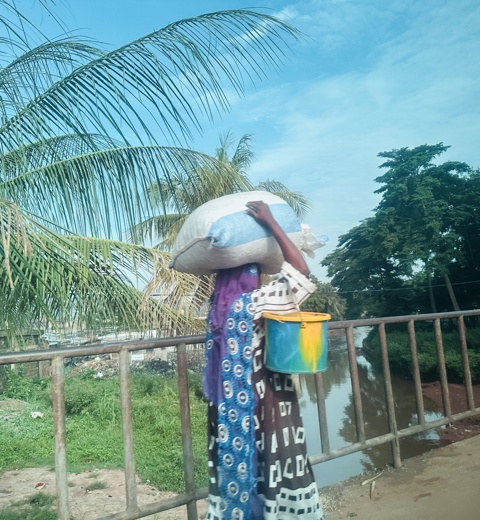- Homepage
- Latest news
- Watercycle impact: 70,000 additional people gain access to water in Bamako, Mali

Watercycle impact: 70,000 additional people gain access to water in Bamako, Mali
Amsterdam, Netherlands – 25 September 2025
World Waternet and its Moroccan mentor partner ONEE are proud to announce the completion of the Dji Tiaman (‘more water’) project in Bamako, Mali. Since its launch in 2022, the project has involved intensive collaboration with the Malian water companies SOMAGEP and SOMAPEP. The project was part of the EUWOP programme, built on the successes of the WaterWorX programme and was supported by GWOPA.
70,000 people with access to reliable water services
The assignment: to strengthen the capacity of the water companies in the area of Non-Revenue Water (NRW) by working on leak detection and improving the hydraulic models. The result: 3.6 million litres of water loss are now prevented every day, giving *70,000 people access to reliable water services. A concrete step towards Sustainable Development Goal 6 (SDG 6): clean water and sanitation for all.
Our objective: 5% reduction in Non-Revenue Water
The Dji Tiaman project focused on reducing Non-Revenue Water (NRW) in three cities around Bamako: Kati, Sikasso and Koutiala. NRW refers to water that is lost before it reaches the customer, for example due to leaking pipes, faulty connections, theft or measurement errors. The objective was ambitious: a 5% reduction in all three cities. And the result? The target was easily achieved.
|
KPI |
Sikasso |
Koutiala |
Kati |
|
Monthly production (m3) |
389,292 |
186,798 |
360,574 |
|
Improvement of NRW in % |
7.3 |
9.9 |
18.6 |
|
Improvement of NRW in litres (m3) |
22,735 |
18,493 |
67,076 |
|
Price per m³ |
233 |
241 |
260 |
|
Financial gain in euro |
8074 |
6794 |
26,580 |
Figure1 NRW improvement in data
Data analysis, technology, collaboration and connection
An important tactic was the use of DMAs (District Metered Areas), defined zones of 100 to 1,000 connections, in collaboration with our Moroccan WOP partner ONEE. By systematically measuring water consumption within these zones and comparing it with invoiced consumption, water loss became transparent and manageable. In addition, it became clear that there were too many pressure differences in the network. These were addressed by Waternet's hydraulic experts.
Higher turnover strengthens governance and professionalism
The increased efficiency also means extra income for SOMAGEP. These revenues can be invested in further improvements, such as reducing NRW even furth . This creates a flywheel effect in which water savings lead to financial sustainability and structural improvements. World Waternet is extremely proud of this joint achievement. The new director of SOMAGEP, Madame BOCOUM Fatoumata Siragata TRAORÉ, a role model for women in the water sector, also emphasised this strongly: "These results illustrate the power of the partnership between multiple partners – World Waternet, ONEE, SOMAGEP-SA and SOMAPEP-SA."
Youth in water part of the success
An indispensable link in this success: the Future Generations / Young Experts of the Young Expert Programme (YEP), made possible by the Ministry of Foreign Affairs and the Netherlands Water Partnership (NWP). These local talents received training through international water programmes and played a crucial role in translating technical knowledge into the local context. The project illustrates how data analysis, technological approaches and local cooperation can effectively contribute to reducing water losses and improving sustainable water management.
The sequel to a success
Despite the geopolitical challenges of working in a country like Mali, World Waternet has succeeded in making the project sustainable. Thanks to trust and good cooperation, the project is being continued. Read more about the sequel in our next blog story: Travelling to Mali with a mission.
*70,000 people is calculated according to World Health Organisation SDG6 guidelines. They assume a consumption of 50 litres per person.
Accept cookies to play video



